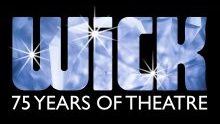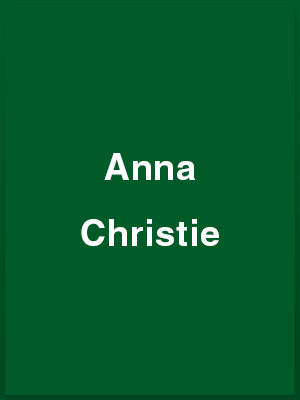GP wrote: “For nearly 25 years Eugene O’Neill dominated the American Theatre. His plays had weight and power. He was the giant of the new realist theatre at a time when our West End was still dallying with drawing room comedies. Today we have the Kitchen Sink, the Theatre of the Absurd, Sex and Cruelty in the language of the back street and the Public Bar: but even in this company O’Neiil’s Anna Christie still has punch and a certain full-blooded period flavour which we have endeavoured to pass on to you in this Arena production.
The seating for play is largely experimental and perhaps, in some instances far from ideal. We have done our best to meet he requirements for safety, fire prevention and accessibility whilst still preserving visibility. If you find the Arena Stage interesting and satisfying as a means of presenting plays, do please let us know.”
Review #1: Anna Christie
Publication: Shoreham Herald
Publication Data: October 2 1964 issue – page 11
Reviewer: C.S.P.
Text Header: “AUDIENCE ON THREE SIDES”
Text: Content
THE Wick Theatre Company earned fresh laurels for itself at the Barn Theatre, Southwick, last weekend with three memorable performances of Eugene O’Neil’s Anna Christie.
Directed by George Porter, who filled a minor rôle at short notice, this highly dramatic story of American waterfront life more than 50 years ago was unfolded with a depth of realism and sensitivity which would have been to the credit of professionals.
The experimental arena stage, with the audience on three sides and on the stage proper, seemed to enhance the drama as it unfolded. The paucity of scenery mattered nothing, for the quality of the acting was sufficient to rivet the attention throughout. The background sounds of lapping water, ships’ sirens and seagulls provided all that was necessary.
Three members of the cast really ‘made’ the play – the old Swedish seaman, Chris Christopherson, reunited in New York with his daughter Anna, whom he last saw 15 years before as a child of five, and the Irish stoker, Mat Burke, rescued by his coal barge.
Enmity
Inevitably, Mat fell in love at first sight with Anna, but bitter enmity ensued between her father and suitor. It transpired that Anna hardly merited the high pedestal of virtue to which they had both elevated her in their imagination, and there were moments of strong dramatic ‘meat’ before the play ended on happier note than had seemed possible.
Brian Moulton, as Chris, was admirably cast as the solid, stolid ex-bosun who wrongly idealised his long lost daughter. His whole performance rang with conviction, without any resort to over-acting, which must have been quite a temptation at times. Clodagh O’Farrell fully merited her selection for the testing rôle of Anna, displaying a whole range of emotions with utter conviction and sinking herself so completely in the part. Whatever the mood of the moment, she caught it exactly.
Newcomer
The company is to be congratulated on finding a newcomer of the acting calibre of Bob del Quiaro, whose Mat Burke was portrayed with a red-blooded, fiery gusto which never over stepped the mark of reality.
Successfully appearing in supporting rôles were Betty Dawes, excellent as Martha Owen, Chris’s big-heated ‘woman’, and Norman Hutchins, Ralph Dawes [also stage manager], Colin Lydon, Jeff Waller, Colin Guy, Terry Mase and Paul Carpenter.
Assisting backstage were Margaret Perrett, Pauline Dorman, John Perrett, Frank Hurrell, Morffydd Bowen, Dorothy Burnside and Jean Porter.
Review #2: Anna Christie
Publication: Brighton and Hove Gazette
Publication Data: October 2 1964 issue – page 3
Reviewer: THESPIS
Text Header: ‘Anna Christie’ was a theatrical experience
Text: Content
IT is not often. perhaps two or three times in a period of years, that an amateur production occurs that can rightly be described as a theatrical experience.
This happened last weekend at the Barn Theatre, Southwick, when the Wick Theatre Company presented an arena production of Eugene O’Neill’s “Anna Christie”. It seemed to be a perfect mating of highly-skilled direction and inspired acting. Every effect was there, every point was made, and never for one moment was the reality of the characters in doubt.
Brian Moulton, played the drunken old seaman, Chris Christopherson, with a rare insight into the author’s intention, and with deep-felt and real sentiment. The brash bragging Irish man, Mat Burke, torn between his great love for Anna and his primitive abhorrence of her former way of life, was made true elemental man by Bob del Quiaro. It is perhaps the most difficult of the three minor rôles, because of its inherent contradictions. Nevertheless, the character of Mat Burke was never in doubt.
Clodagh O’Farrell was Anna Christie, the name by which Anna Christopherson was known in the “house” to which she had drifted after a life of slavery on a farm, and seduction at the age of 16. For the past to be so clearly seen in the present, and for the change from a tarty girl who comes home to her father to the real women in love with Mat Burke to be so well and so truly evolved, require something more than expertise. Clodagh’s Anna Christie will be long remembered.
Marthy Owen, a likeable slattern, was played by Betty Dawes, and an assortment of barmen, postmen, longshoremen and sailors by Norman Hutchins, Colin Lydon, Colin Guy, Ralph Dawes, Terry Mase and Paul Carpenter.
In this production, the director, George Porter, and the Wick Theatre Company have set themselves a standard so high that they will be hard put to live up to it, but what a challenge!
Review #3: Anna Christie
Publication: Unknown
Publication Data: Unknown
Reviewer: B.S.R.
Text Header: Unknown
Text: Content
FOR the first time, by way of an experiment, the Wick Theatre Company, Southwick, performed a play last week with the arena setting that is slowly beginning to catch on among amateur societies. This new approach, with the audience seated round the set, greatly reduces the barrier between players and spectators. For the audience the stage and the environment portrayed on it are no longer out of reach, but there in the midst of them, providing a closer, less formal relationship.
The company’s choice of Eugene O’Neill’s Anna Christie lent itself perfectly to this form of presentation. The cast, also, with only the bare necessities in the way of props, managed to bring to life a story full of vigour tempered with deep sensitivity.
Reunited
A young girl, hardened by her rough upbringing, is re-united with her father after several years. The girl, Anna Christie, beautifully played by Clodagh O’ Farrell, manages to find solitude and perhaps the true meaning of life, on the river in her father’s barge.
Brian Moulton, gave an admirable performance as Anna’s Swedish father. With the arrival of his daughter, life for him also takes on a new meaning, but not without complications as the plot unfolds. Praises are also due to Betty Dawes for her convincing characterisation of Marthy Owen – a woman hardened by life on the waterfront, but not entirely without sympathy and understanding.
Under George Porter’s direction Anna Christie can be recorded as another success for this very popular company.





